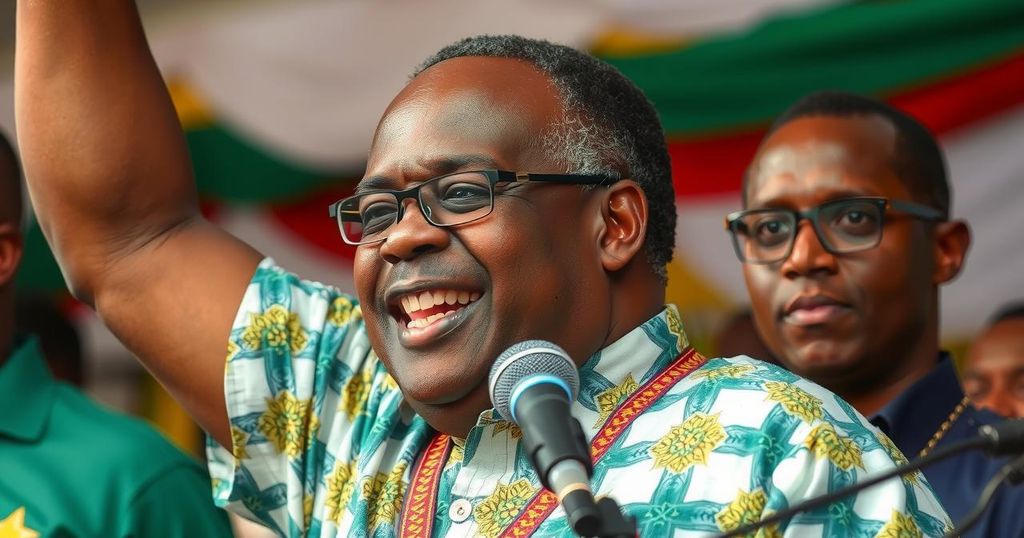John Mahama Makes Historic Election Comeback as Ghana’s President
Former president John Mahama has made a historic comeback in Ghana, winning the presidential election for the third time after being previously ousted. His victory marks a milestone in the country’s political history, making him the first leader to reclaim the presidency after defeat since the 1992 return to democracy. Mahama campaigned on economic revitalization and anti-corruption measures, tapping into the public’s frustrations over recent economic challenges, including a debt default and an IMF agreement.
In a significant political turn, former president John Mahama of the National Democratic Congress (NDC) has achieved a historic victory in Ghana’s presidential elections, marking his successful return to power after previously being ousted. Mahama’s win represents a pivotal moment in Ghana’s democratic history as he becomes the first leader in the 30-year period of the Fourth Republic to reclaim the presidency after defeat. Securing his win on Saturday, Mahama defeated Vice President Mahamudu Bawumia of the ruling New Patriotic Party (NPP), who conceded his loss the day following the election.
Mahama’s campaign capitalized on widespread public discontent over the economy, exacerbated by Ghana’s recent debt default and a consequential $3 billion agreement with the International Monetary Fund (IMF). At the age of 66, he has vowed to “reset” the nation’s economic strategies and renegotiate the terms of the IMF deal while promising to implement a “24-hour” economy aimed at generating employment opportunities, particularly appealing to the younger electorate.
Having served as president from 2012 to 2017, Mahama’s previous presidency was not without challenges, including accusations related to corruption and a significant energy crisis that led to frequent power outages, locally referred to as “dumsor.” During his term, he faced scrutiny over his administration’s procurement processes, prompting him to propose the establishment of a new office tasked with overseeing government contracts exceeding $5 million to combat corruption.
Mahama’s historical comeback is underscored by his extensive political background, which includes memberships in parliament and leadership roles in regional organizations, notably during the Ebola crisis as the chairman of ECOWAS. Despite his past struggles, campaign spokesperson Mustapha Gbande expressed confidence in Mahama’s ability to lead Ghana toward a more favorable direction. Mahama’s position concerning social issues, such as the anti-LGBTQ bill passed by Parliament in February, remains contentious, generating significant international debate and criticism.
As Mahama embarks on this new chapter of leadership, the nation’s political landscape is poised for a transformative period driven by economic revitalization and public trust.
Ghana’s political scene is characterized by its multi-party system resulting from the return to democracy in 1992. Since then, the country has witnessed significant electoral competition, with John Mahama emerging as a key figure in this landscape. Having served as president in the past, Mahama’s recent electoral victory reflects not only his political resilience but also the changing economic demands of the electorate. The current climate, particularly concerns regarding the economy and governance, highlights the deeper socio-political dynamics at play, including issues of corruption, youth unemployment, and international financial relationships.
The recent election outcome signifies a remarkable moment in Ghana’s democratic history, with John Mahama’s return to power following his earlier defeat being unprecedented in the Fourth Republic. His campaign focused heavily on economic revitalization, particularly resonating with younger voters, and included promises to tackle corruption and renegotiate international financial commitments. As Mahama resumes the presidency, the implications of his policies on Ghana’s socio-economic landscape will be closely monitored by both national and international observers. Moreover, his historical experiences and past presidency provide a backdrop to his approach to governance, emphasizing the importance of stability and economic growth in addressing the concerns of the populace.
Original Source: www.wfxg.com




Post Comment